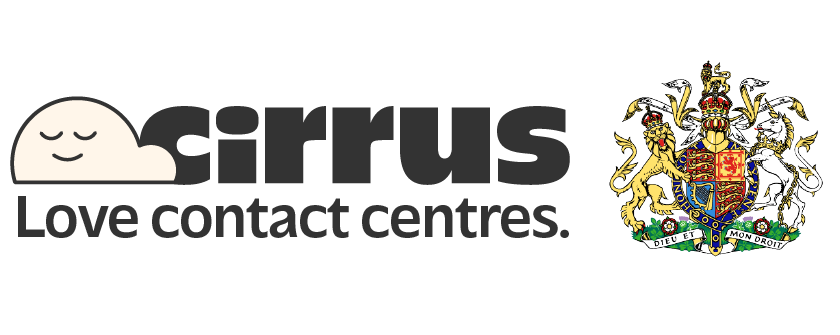The narrative around customer service is changing rapidly, particularly for those facing significant challenges. Vulnerable customers—individuals who require extra support due to their life circumstances—are becoming a core focus for businesses. In 2023, 56% of UK adults identified as vulnerable under new Consumer Duty regulations, up from 47% in May 2022.
This increase is driven by various factors, including an ageing population, economic strains, and unprecedented global events like pandemics. The new Consumer Duty regulations highlight that more than half of adults face some form of vulnerability. Statistics highlight the urgent need for businesses to rethink their approach to customer service, ensuring it is inclusive and accessible.
This article explores adapting customer service to meet these needs and offers actionable insights for contact centres.
Walking in Their Shoes
Understanding the needs of vulnerable groups requires deep empathy and a willingness to walk a mile in their shoes. Vulnerable customers often need easy access to services and clear communication. For example, many individuals with disabilities rely heavily on accessible technology and empathetic interactions. Contact centres must prioritise training that develops empathy and understanding, helping staff recognise and address these customers’ unique challenges.
The Role of Contact Centres
Invest in Accessible Technology
When thoughtfully implemented, technology can bridge the gap between capability and necessity. For instance, voice-activated software can assist those who struggle with small touchscreens, while accessible website design can help individuals with cognitive disabilities navigate services independently. In 2023, 85% of customers with disabilities reported that accessible technology significantly improved their interaction with services. Contact centres should invest in accessibility technologies like speech recognition software, real-time text support, and user-friendly interfaces.
Implement Comprehensive Training Programs
Empathy training is crucial in transforming customer service from a series of transactions to meaningful conversations. Training sessions that include simulations of customer frustrations can create a deep understanding of the barriers faced by vulnerable individuals. Studies show that 70% of customers who receive empathetic service are more likely to remain loyal to a brand. Contact centres should implement regular training programs focused on empathy and effective communication strategies to serve vulnerable customers better.
Establish Strong Partnerships
Successful support systems often result from partnerships that leverage community resources, government programs, and non-profits. These collaborations can create a safety net that catches those who might otherwise fall through the cracks. The FCA’s Consumer Duty regulations emphasise the need for financial services to act for the good of all customers, considering the unique needs of vulnerable individuals at every stage of the customer journey. Contact centres should seek partnerships with local organisations to provide comprehensive support and resources to vulnerable customers.
Create Suitable Feedback Mechanisms
Feedback loops are vital for continually improving customer service. Gathering and acting on feedback from vulnerable customers ensures services remain accessible and welcoming. Recent findings show that 82% of vulnerable customers report that the cost-of-living crisis has impacted their priorities and preferences, highlighting the need for continuous adaptation and support. Contact centres should establish robust feedback mechanisms, such as regular surveys and focus groups, to stay attuned to their customers’ evolving needs.
Insights From Money Wellness
Money Wellness, a debt advice and solutions provider, is on a mission to help people “Live More. Stress Less.” Passionate about improving financial well-being, Money Wellness assists individuals out of debt and empowers them to make the most of their money. Funded by a levy on financial services providers and commissioned by the Money and Pensions Service, their advice and support are free to all customers.
Comprehensive Support for Diverse Needs
Money Wellness understands the intrinsic link between debt and vulnerability, supporting around 1,000 people daily and advising customers with nearly £700 million worth of debt over the past 12 months. Nearly 60% of their customers require extra support due to physical, mental, or transient vulnerabilities. They continuously monitor and improve their services, working with external charities and organisations to ensure accessibility and engagement with typically harder-to-reach groups. Their omni-channel approach includes telephone, webchat, video call, and full online service, catering to the diverse preferences of their customers.
Integrating Seamless Translation Services
To ensure inclusivity, Money Wellness integrated real-time translation services available in 240 languages, used for 467 hours in the first year. This feature assists a diverse customer base in their preferred language, making services accessible regardless of language barriers.
Upgraded Contact Centre Features
Money Wellness rolled out advanced features in their contact centre solution to effectively manage high volumes of inquiries. These tools improve the team’s ability to handle customer interactions across multiple channels, ensuring seamless communication and quick issue resolution. The upgraded system includes real-time monitoring and feedback capabilities, maintaining high service standards and promptly addressing emerging issues.
Using Customer Feedback for Continuous Improvement
Money Wellness actively incorporates customer feedback into service enhancements. With thousands of positive Feefo reviews, they continuously refine their offerings to meet customer needs better. This commitment ensures their services are accessible and effectively address their customers’ diverse needs.
Conclusion
Customer service is changing, with a growing focus on helping those who need extra support. As more people face challenges due to age, economic issues, or other factors, it’s crucial for businesses to make their services more inclusive and accessible.
Showing empathy and understanding is key. Training staff to better understand and help vulnerable customers can turn routine interactions into meaningful ones. Using technology thoughtfully can also make a big difference. Tools like voice-activated software and accessible website designs can help everyone use services more easily.
Listening to customer feedback is essential for keeping services effective and welcoming. Strong partnerships with community resources and organisations can provide the extra support that many people need.
Money Wellness is a great example of how to get this right. They help people manage debt and improve their financial well-being, offering services in multiple languages and across various platforms to meet diverse needs.
Ultimately, adapting to the needs of vulnerable customers is not just good for business—it’s the right thing to do. By committing to this approach, companies can build long-lasting trust and loyalty, ensuring that all customers feel valued and supported.
Ready to improve your customer service and support vulnerable customers more effectively?
Discover how Cirrus can help you implement inclusive, empathetic, and technologically advanced solutions. Visit our Contact Us page to get started. Let’s work together to create a service environment where customers feel valued and supported.






